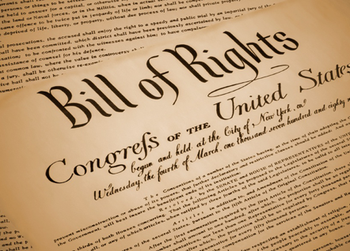
Florida Court Rules Police Can Force iPhone Users to Give up Their Passwords
Happy New Year!!
Don’t look now Florida, but in December it appears we may have become the center of yet another Fifth Amendment controversy. Read this report and ponder it.
What are your thoughts?
A Florida District Court of Appeals recently ruled that authorities can force iPhone users to give up their passwords, per a new report.
Florida man Aaron Stahl was charged with video voyeurism after he allegedly took up-skirt pictures of a woman in a store with his phone. The incident was caught by store surveillance cameras, and police obtained a warrant to search Stahl’s phone. Police were unable to see the pictures that they believed were contained on the iPhone 5, however, because the phone was locked and Stahl refused to give authorities the password, TechRepublic reported.
Originally, a ruling by a trial court declared that Stahl didn’t have to give up his passcode, as it fell under the protection of the Fifth Amendment — which shields citizens from being forced to incriminate themselves. Earlier this month, however, the Florida Court of Appeals overturned that lower court ruling, ZDNet reported.
“Unquestionably, the State established, with reasonable particularity, its knowledge of the existence of the passcode, Stahl’s control or possession of the passcode, and the self-authenticating nature of the passcode,” Judge Anthony Black’s decision stated. “This is a case of surrender and not testimony.”
The ruling in Florida is notable because it deviates from other similar cases in Colorado and Pennsylvania. In those cases, courts concluded that giving up a password would be self-incrimination — and would therefore fall under the protection of the Fifth Amendment.
Although just a ruling in Florida, Black’s decision could have far-reaching implications for the future of consumer and digital privacy rights in the United States. Going forward, we might see more and more courts making similar rulings.
This isn’t the first time that Apple’s products have been at the center of privacy controversies, either. Apple famously refused a court order to create a backdoor for the FBI in wake of the Bureau being unable to unlock an iPhone belonging to one of the San Bernardino shooters. Additionally, a recent article about Manhattan’s District Attorney’s Office revealed that the office’s crime lab had several hundred iPhones that it couldn’t crack.
The American Civil Liberties Union released a report in March that found a string of cases in which the government had applied for orders to compel tech companies to provide assistance to authorities in accessing data stored on mobile devices. Since 2008, the ACLU found 63 confirmed cases — and up to 13 additional cases.
While being the right to refuse giving up a passcode is currently in murky territory, giving up your fingerprints is another story entirely. In 2014, a Virginia judge ruled that police could force smartphone users to unlock their phones with their fingerprints, according to a May article in the Atlantic.